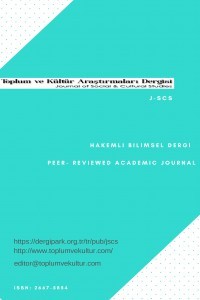HİÇ YERDEN ADALET: THOMAS NAGEL’İN VE JOHN RAWLS’UN DÜŞÜNCESİNDE ETİK-SİYASAL NESNELLİK
Etik ve siyaset arasındaki ilişkiye dair sorular tarih boyunca kuramcıların zihinlerini meşgul etmiştir. Etik ve siyasal olan arasındaki ilişkiyi en açık şekilde dile getiren filozoflardan biri de Thomas Nagel’dir. Buna göre denilebilir ki Nagel’in öznellik ve nesnellik üzerine soruşturmaları yalnızca etik alanında değil, siyasal düşünce bakımından da önemli noktalara değinmektedir. Öte yandan liberal siyaset kuramının önemli isimlerinden olan John Rawls’un başlangıç durumu ve bilgisizlik peçesi önerileri de siyasal adalet anlayışı ile ilişkili olarak benzer şekilde tekliği tanıyan bir nesnellik düşüncesine işaret eder. Her ne kadar Rawls’un sözleşmeci düşüncesi özellikle siyasal bir tabandan yükselmiş olsa da tarafsız ilkelere dayanan bir cemiyetin olanağını sorgulayan, siyasal adalet ve liberalizm üzerine çalışmalarının belli başlı uğrakları etik ve ahlak alanındaki bir soruşturma kapsamında yeniden değerlendirilebilir. Bu çalışma, bu noktalardan yola çıkarak, ilkin Nagel’in tarafsızlık ve nesnellik kuramını etik-siyasal bir pencereden okumayı hedeflemektedir. İkinci olarak Nagel’in ‘hiç yerden bakış’ anlayışının Rawls’un ‘bilgisizlik perdesi’ fikri ile bir arada yeniden düşünülmesi amaçlanmaktadır. Buna göre her iki filozofun ilgili tartışmaları karşılaştırmalı bir biçimde ele alınırken söz konusu tartışmalar arasındaki belli paralelliklerin de altı çizilecektir
Anahtar Kelimeler:
Etik, Siyasal Adalet, Nagel, Nesnellik, Rawls
JUSTICE FROM NOWHERE: ETHICO-POLITICAL OBJECTIVITY IN THOMAS NAGEL AND JOHN RAWLS
The question regarding the relationship between ethics and politics has always occupied the minds of philosophers and political theorists. Thomas Nagel is one philosopher among others who clearly draws a close link between the ethical and the political. Accordingly, Nagel’s inquiry on the issues of objectivity and subjectivity is providing the readers not only with ethical but also political insights regarding the matter. On the other hand, John Rawls’s ideas of an “original position” and a “veil of ignorance” in their relation to his understanding of political justice, similarly, interrogate the possibility of an alternative perspective for an objective standpoint that recognizes and encompasses individuality while offering a model for a political community which is founded upon impartial principles. Although Rawls’s discussion is mainly contractual and strictly political, certain aspects of his works on political justice and liberalism might be reconsidered in an investigation which also engages with issues in morality and ethics. Therefore, the present study will attempt at reading Nagel’s discussion of objectivity and impartiality from an ethico-political standpoint which juxtaposes ‘the view from nowhere’ with Rawlsian “veil of ignorance”. For this, relevant arguments of both philosophers will be explored in a comparative manner while highlighting potential parallelisms between the two.
Keywords:
Ethics, Political Justice, Nagel, Objectivity, Rawls,
___
- Freeman, S. (2003). The Cambridge Companion to Rawls. Cambridge: Cambridge University Press.
- Nagel, T. (1973). Rawls On Justice. The Philosophical Review, 82(2), 220-234. https://doi.org/10.2307/2183770
- Nagel, T. (1987). Moral Conflict and Political Legitimacy. Philosophy & Public Affairs, 16(3), 215–240.
- http://www.jstor.org/stable/2265265
- Nagel, T. (1987). What Does It All Mean? A Very Short Introduction to Philosophy. Oxford: Oxford University Press.
- Nagel, T. (1989). The View From Nowhere. Oxford: Oxford University Press.
- Rawls, J. (1999). A Theory of Justice: Revised Edition. USA: Harvard University Press.
- Rawls, J. (2005). Political Liberalism: Expanded Edition. New York: Columbia University Press.
- Sleat, M. (2015). Justice and Legitimacy in Contemporary Liberal Thought: A Critique. Social Theory and
- Practice, 41(2), 230–252. http://www.jstor.org/stable/24332279
- Thomas, A. (2009). Thomas Nagel. Stocksfield: Acumen Publishing
- Verza, A. (1999). Impartiality in the Liberal Theories of Rawls and Nagel. ARSP: Archiv Für Rechts- Und
- Sozialphilosophie / Archives for Philosophy of Law and Social Philosophy, 85(2), 222-232.
- http://www.jstor.org/stable/23681324
- Yayın Aralığı: Yılda 2 Sayı
- Başlangıç: 2018
- Yayıncı: Çağatay SARP
Sayıdaki Diğer Makaleler
TÜRKİYE’DEKİ ÖZEL SEKTÖRÜN KLASİK BATI MÜZİĞİ HAMİLİĞİNE TARİHSEL MATERYALİST BİR BAKIŞ
MATBUATTA NECİP FAZIL’IN NAMIK KEMAL KİTABI ÜZERİNE TARTIŞMALAR
ÇEVİRİ ÜZERİNE SLOVAK DÜŞÜNCESİ – POLİTİK-SOSYAL-KÜLTÜREL BİR YANSIMA
HİÇ YERDEN ADALET: THOMAS NAGEL’İN VE JOHN RAWLS’UN DÜŞÜNCESİNDE ETİK-SİYASAL NESNELLİK
GÜNÜMÜZ KENTLERİNDE YAŞLILIK VE SOSYAL DIŞLANMA
Ayşe DERİCİOĞULLARI ERGUN, Cem ERGUN
YİYECEK VE MUTFAĞIN TOPLUMSAL GÖRÜNÜMLERİ - YEMEK VE MUTFAK TİPOLOJİSİ ÇALIŞMASI -
